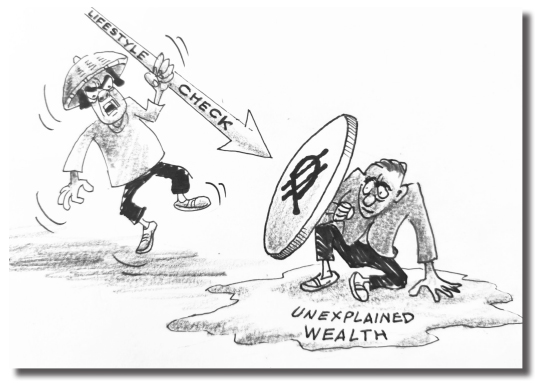The wealth and assets of many government officials often do not match their lawful income. This is why constant and consistent lifestyle checks are necessary. Only through such scrutiny can the truth about ill-gotten riches be exposed.
Corruption in government offices has long been an open secret, particularly in agencies where contracts, permits, and public funds are handled daily. It is in these areas where questionable transactions flourish and where public officials suddenly acquire properties, vehicles, and businesses that their salaries could never justify. Lifestyle checks, when institutionalized and sustained, will uncover these glaring discrepancies and provide a basis for legal accountability.
A periodic review of declared assets and visible wealth is not merely a procedural exercise but a deterrent against unscrupulous behavior. When corrupt officials know that watchdogs are vigilant, that every unexplained purchase or extravagant display could be investigated, their room for manipulation narrows. This practice strengthens the culture of accountability and pressures government servants to live within their lawful means.
Equally important is the credibility of the bodies conducting these checks. Agencies like the Ombudsman, the Commission on Audit, and the Civil Service Commission must be empowered with greater resources and independence to perform their functions without political interference. Their mandate should be shielded from influence-peddling, and their findings should automatically trigger prosecution when warranted, not be buried in bureaucracy.
Lifestyle checks are not just about catching thieves in public office but about restoring dignity in governance. Legislation should be passed to make lifestyle monitoring mandatory, regular, and transparent, with clear consequences for those who fail to explain their wealth. By doing so, the state can demonstrate seriousness in cleansing its ranks and reaffirm that public service is a duty, not a gateway to personal enrichment.




